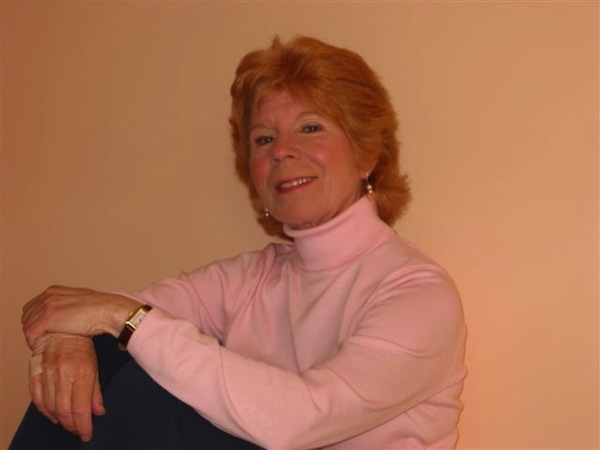Molly-Ann Leikin (photo from Molly-Ann Leikin)
For most of her five-decade musical career, Molly-Ann Leikin felt something was missing – many English speakers singing Hatikvah had no idea what the Hebrew words coming out of their mouths actually mean. So, she set about creating an English version of the Israeli national anthem.
Her version is not a translation, Leikin stressed in an interview with the Independent, from her home in Santa Barbara, Calif. She contends that no translation could possibly convey the meaning of the original Hebrew. Instead, she wanted an anthem set to the same melody that everyone singing it could enjoy, understand and, as she said, “feel the passion.”
Born in Ottawa, Leikin graduated from the University of Toronto. The author of How to Write a Hit Song and How to be a Hit Songwriter, she has composed themes and songs for more than five dozen television shows and movies, and her work has been performed by a diverse array of entertainers, such as Anne Murray, Tina Turner and Billy Preston. Among many other things, she has done private songwriting coaching in Vancouver since the 1980s.
Early in her career, Leikin said she felt there was no way for a tunesmith to make a living in Canada, so she hopped into her dented red Volkswagen Bug and drove – starting her journey during a severe snowstorm – to Los Angeles. Now, she co-writes and consults with new artists and lyricists, helping them advance their original songs to compete in the marketplace.
Leikin lists 12 of her clients as Grammy winners, another 17 as Grammy nominees. According to the latest count on her website, she has helped 7,518 writers and artists place their work in movies, television shows, on CDs, in video games and commercials, and their tracks can be downloaded from various sources on the internet.
“My motto is, ‘If you’ve got the tracks, I’ve got the contacts,’” she said.
In addition to writing songs, Leikin writes bar/bat mitzvah speeches, toasts, roasts, vows and memorials.
Revisioning Hatikvah
When she was a university student in the late 1960s, Leikin spent a year in Ashkelon and, after attending an ulpan for four months, could understand the lyrics of Hatikvah (The Hope).
In 2014, while in Toronto for the Toronto International Film Festival, she was stung by bees and fell into a coma for two years. By the time she recovered, in 2016, a freak accident on her right foot left her unable to walk for another 18 months. Every doctor she saw in Santa Barbara misdiagnosed her. Devastated and unable to work, she lost her home, her businesses and her savings.
In 2017, an old friend she had not seen in 37 years called from Montreal to wish her happy birthday. The friend arranged for Leikin to be transported from Santa Barbara to Los Angeles’s Cedars-Sinai Medical Center. There, the doctors discovered the problem and a 45-minute operation fixed it.
On the way into surgery, she promised God, if He would heal her, she would use her gifts to create something to benefit the Jewish community throughout the world.
During her three-month recovery, she tuned into a classical station and kept hearing the melody to Hatikvah. The words to what would become her take on the anthem slowly began to form.
A family in Toronto, for whom she had written a eulogy, asked Leikin what her next project would be. She told them about Hatikvah, and they arranged for a grant for her to record it. (That family wishes to be anonymous.)
Hatikvah became Israel’s official anthem in 2004. The melody had been heard throughout Europe and was adapted by Czech composer Bedrich Smetana. The Hebrew lyrics are based on a poem by Naftali Berz Imber, who was from what is now Zolochiv, Ukraine.
A growing number of synagogues in the Los Angeles area and throughout the continent, Leikin said, have been playing her version, the chorus of which is “Feel the hope that’s rising everywhere / Feel our song become an answered prayer / For our sisters and brothers as we stand with all of them / In our homeland Jerusalem.”
The B.C. connection
Leikin maintains strong ties to British Columbia. Early in her songwriting career, she was hired to write “It’s Time to Say I Love You,” the theme song for The Other Side of the Mountain Part 2, filmed at Victoria’s Butchart Gardens.
“I flew up to see what I would be writing about and, in the middle of all that beautiful, I didn’t want to leave,” she said. “Almost every summer since 1977 I’ve been back to Vancouver. I go there to celebrate the High Holidays and Passover. When you guys figure out how to make it rain less, I’m moving into English Bay.”
Leikin’s “Hatikvah” can be heard at youtu.be/XV0cX7jB4Q0.
Sam Margolis has written for the Globe and Mail, the National Post, UPI and MSNBC.


